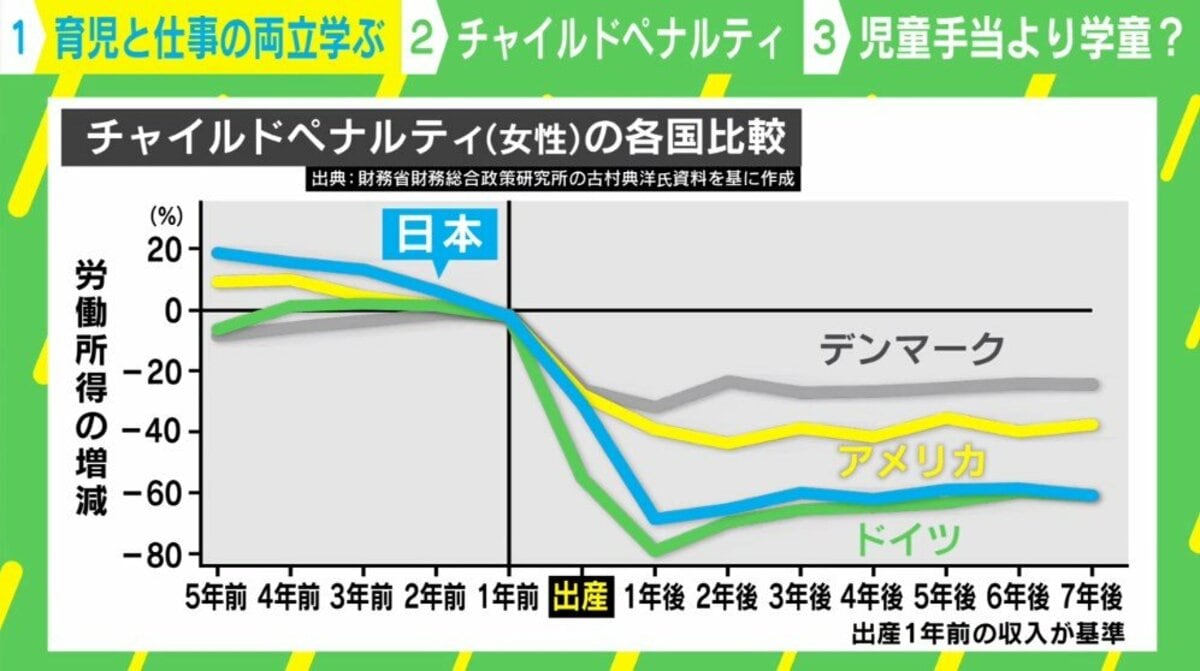【News Citation】
Women’s wages will decrease if they have children.” What is the serious “child penalty” that Japan faces due to its low birth rate?
The child penalty is simply defined as “the amount by which labor income declines after the birth of a child. According to research data by Norihiro Furumura of the Ministry of Finance’s Financial Policy Research Institute, income begins to drop sharply one year before the birth of a child.
Compared to Denmark and the U.S., the drop in Japan is large. In fact, one of the characteristics of Japan is that such a decline in wages occurs only among women. The implication of the recent study is that “having children may explain a large part of the wage gap between men and women.
Furthermore, countries where child penalties are severe tend to have “low fertility rates. It is not surprising that the birth rates of Germany and Japan are low. If women were told that their wages would be reduced if they had children, many of them would be tempted to think twice.
【Citation】

【personal opinion】
Japan Ninety-nine percent of the companies in Japan are small and medium-sized enterprises (SMEs), and the people who work there account for 70% of the total workforce.
In Japan, women are often heard to think that they had to quit their jobs to have children, because small and medium-sized enterprises do not have the capacity to support pregnancy and childbirth.
And in general, in Japan, the best employment conditions are found when a new graduate starts working as a regular employee, and once they leave, they often only get non-regular employment or other jobs with poor conditions.
Therefore, women who have children are forced to leave the labor market once they become pregnant, and then they are forced to take a non-regular job with poor conditions, which results in lower wages.

